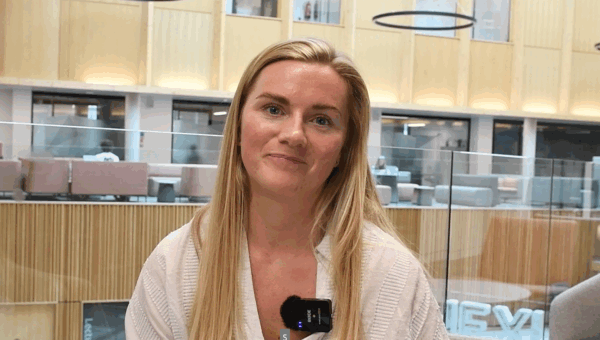How to grow your startup during a pandemic
In a year in which even the most robust business models were pushed to their limits, it’s been a challenging time to be a startup. Yet, in the face of circumstances that tested all of us, many young businesses have survived, and even thrived, despite the upheaval of the past year.
Our recent Business Barometer survey found that a fifth (21%) of startups in Yorkshire felt the pandemic actually helped their business to grow, with 71% saying they feel confident about their growth in the next 12 months – showing that growing your business in the wake of a pandemic can be done.
Here are our three pieces of advice for startups looking to scale up during the current climate.
Learn from the lessons of the pandemic
The pandemic laid bare the pain points of many businesses. There may have been some difficult lessons to learn, but startups should use this knowledge to help them become more resilient and to strengthen their business models in the years to come.
Whether it’s working out how to make your business run effectively whilst working remotely, or how to adapt your services and products for the changing needs of the population, the pandemic forced many businesses to adapt their usual ways of working. However, it’s important not to get complacent about “the new normal” and instead to look at how you can adapt your business models to the difficulties that might be ahead – whether that’s selling your services post-COVID or how to export after Brexit.

Use size to your advantage
Startups have an advantage in times of great change, as their agile nature means they’re better equipped to adapt to change than larger, more established businesses. Many early-stage businesses have used this to their advantage in recent months, with some being able to use their skills to offer solutions to problems, or adapt their products for changing market needs.
Despite signs of a brighter year ahead, the challenges and new behaviours that have arisen from the COVID-19 pandemic are not going away. Businesses will need to adapt to the ‘new world’ and startups looking to grow should identify what their customers new requirements are, try to anticipate what the next year might look like, and where their services and products could offer real value and change. Investing in equipment and facilities can be daunting for startups and small businesses, with the financial burden often a barrier for those who are yet to start their investment journey. However, working in partnership with a university can unlock access to world-class facilities and more importantly, those who have the experience and expertise to operate such equipment. Not only this, it will also put you in touch with some of the most distinguished researchers and give you access to cutting-edge studies.
If you’ve got a business idea but aren’t sure how to get it off the ground, there’s lots of support available for startups who are hoping to make their ideas a reality.
Innovate to grow
Innovation is often the differentiator between businesses that tread water and businesses that thrive, and never has this been truer than in the current economic climate. It’s something that we see reflected in our research too, with startups who believe innovation is business critical being 78% more confident about their future than those who don’t.
It can be difficult to make the time to innovate but it’s vital to do so, and to reexamine what we mean by innovation. It’s not just those lightbulb moments, which aren’t always so easy to arrive at – but a long term combination of collaboration, partnerships and pools of talent that come together to create something extraordinary. The best way to tap into this is through engaging in business communities, and luckily, the Leeds City Region has lots of opportunities for startups to do this. Our Business Barometer report has lots of advice for startups on how they can be part of the wider business community.
Find out more about the Business Barometer.
Latest news

Nexus Meets… Edge Analytics
Lauren Batchelor from Edge Analytics speaks to us as part of our Nexus Meets series.
Read article
Welcoming MHRA to Leeds: Nexus hosts roundtable as new digital hub launches to drive innovation and growth in the region
As long-standing supporters of the region’s health innovation ecosystem, we were honoured to welcome Secretary of State for Health and Social Care, Wes Streeting, and the Medicines and Healthcare Products Regulatory Agency (MHRA) Chief Executive, Lawrence Tallon, at Nexus this week.
Read article
Nexus Connect: Health Innovation and Regulation
At our latest Nexus Connect event, we welcomed four leading voices in the healthtech and medtech regulation landscape to share their expert perspectives and first-hand experiences navigating one of the most complex – and critical – aspects of health innovation, regulation.
Read article
Nexus leads the way in supporting entrepreneurs’ mental health
Nexus, at The University of Leeds has invested in mental health training to support its staff and hundreds of members.
Read article